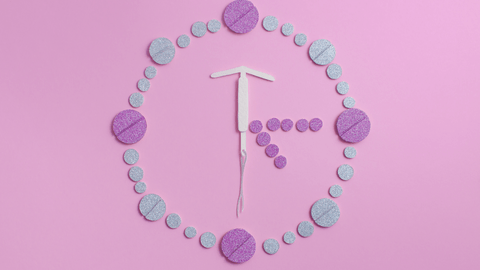Egg Donation and Birth Control: Can You Donate Eggs With an IUD?
In today's society, infertility is an increasingly common struggle among the world's population. It often takes years before intended parents that are unable to conceive start taking advantage of medical advancements within Assisted Reproductive Technologies (ART) in order to treat infertility. One of the most effective fertility treatments is In-Vitro Fertilisation (IVF) with donor eggs. The act of donating eggs is considered to be generous, selfless, and compassionate, as donors essentially are giving the gift of life to those who are unable to have children on their own.
However, there are many considerations and questions that may arise for the potential egg donors. One of the most frequently asked questions about the egg donation cycle is: Can I become an egg donor if I have an IUD device?

Intrauterine devices (IUDs) are an excellent birth control option. To get an IUD, women have to seek out a fertility specialist who will insert the device into the woman’s womb (uterus) in order to prevent pregnancies. There are two types of intrauterine devices:
Hormonal IUDs (Mirena, Kyleena, Liletta, and Skyla): The Mirena, Kyleena, Liletta, and Skyla IUDs use a hormone called progestin. Progestin is a hormone similar to a hormone our bodies naturally produce called progesterone. Skyla works for up to 3 years, Kyleena works for up to 5 years, while Mirena works for up to 7 years, and Kyleena and Liletta work for up to 7 years. Hormonal IUDs often have the same side effects as birth control pills, including:
- acne
- weight gain
- breast tenderness
- changes of mood
In addition to preventing pregnancies, hormonal IUDs will lighten your periods and reduce cramps. Mirena and Liletta may get rid of your menstrual cycles entirely.
In addition to hormonal IUDs, there are also copper IUDs, such as Paragard. ParaGard, like the other types of IUDs, is implanted in the uterus and is designed to prevent pregnancy for up to 10 years. Additionally, it can be used as a form of emergency contraception within five days of unprotected sex or contraceptive failure.
Now, can you donate your eggs if you have an IUD? Having an IUD does not disqualify you from becoming an egg donor. However, it is often the case that the egg donation process requires the removal of hormonal IUDs. On the contrary, non-hormonal copper IUDs will not affect the egg retrieval process, and therefore not need to be removed.
What about other birth control and egg donation?
In general, the use of birth control will not affect your status as a donor. However, you can only continue to use all forms of non-hormonal birth control during the egg donation process. In addition, birth control pills, patches, and rings are allowed. The hormonal IUD can be left until the screening process if you have regular periods. But in case of having low numbers in results of Ovarian Assessment Report (OAR) after medical screening, you will need to remove them before donating your eggs.
Become an Egg Donor - Donate Eggs at Ovoria
Join our mission to make dreams come true. Your selfless act can bring joy to those longing for a family. Together, we can create a brighter future. To take the first step, contact us today and become an egg donor at Ovoria. Your generosity can change lives.

